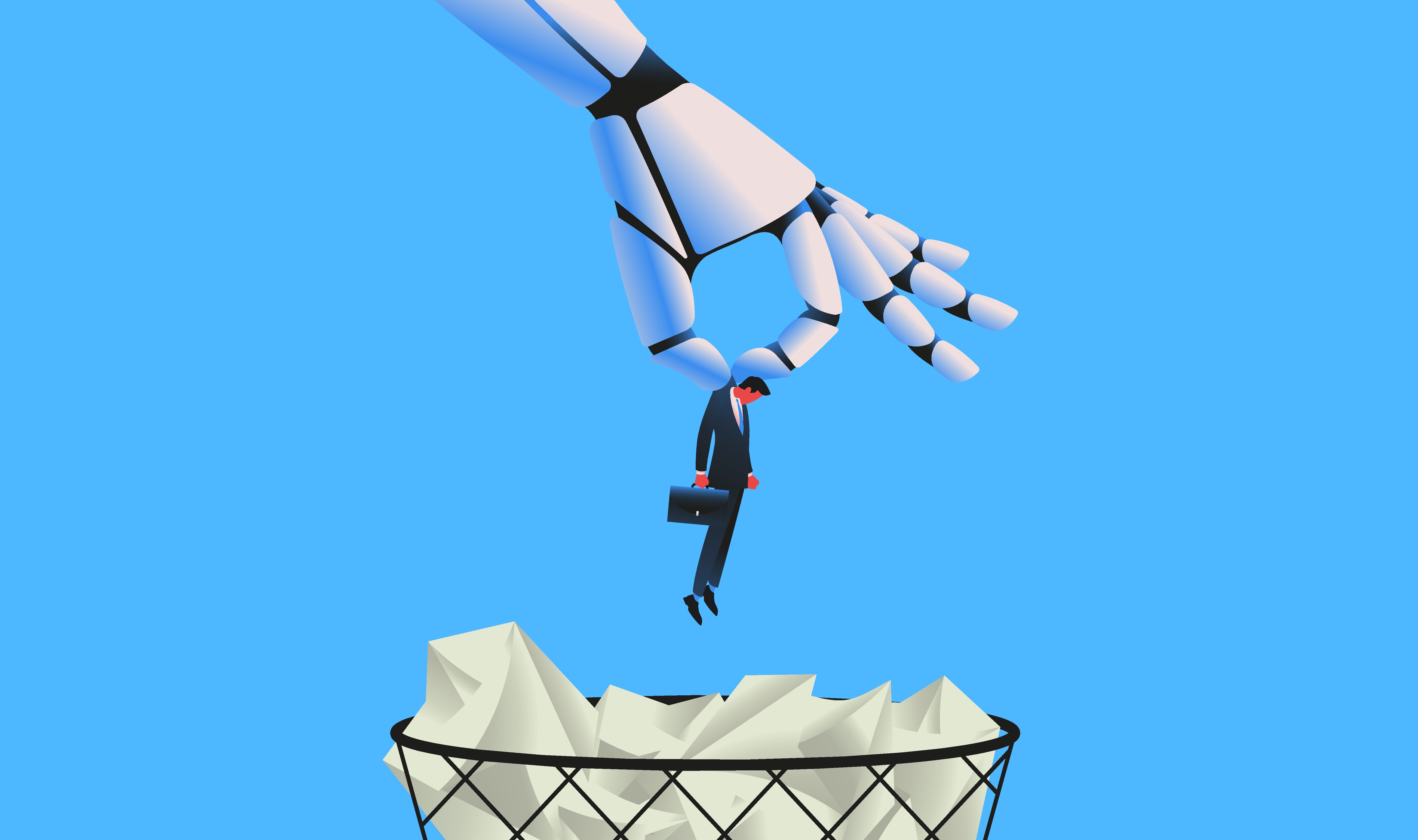
Moor Studio/Getty Images
CEOs sending scary AI memos to employees may be doing more harm than good.
In recent months, some company leaders have gone public with strikingly bleak outlooks, predicting generative AI tools like OpenAI’s ChatGPT and Google’s Gemini will displace wide swaths of white-collar workers and shrink job opportunities for recent college graduates.
“It does not matter if you are a programmer, designer, project manager, data scientist, lawyer, customer support rep, salesperson, or a finance person — AI is coming for you,” wrote the CEO and founder of the freelance-job site Fiverr in an email to employees that he shared on LinkedIn.
Other company chiefs, including the bosses of chatbot maker Anthropic and payments provider Klarna, have voiced similarly grim employment forecasts tied to the AI surge.
“This is unusual,” Johnny Taylor, president of the Society for Human Resource Management, told Business Insider, noting that chief executives aren’t typically so forthcoming or pessimistic. “But AI is unusual. There is going to be a fundamental shift in how work will be done.”
AI adoption kicks up
Last year, 78% of workers said their organizations had used AI in at least one function, up from 55% in 2023, according to an AI-focused survey, released in March, by the global management consulting firm McKinsey.
Companies’ rapid adoption of AI is putting CEO communication to the test. While transparency is key to building trust with employees, leadership experts say telegraphing expectations of doom and gloom, no matter how sincere, can sink morale and hamper productivity.
As an employee “you’re using so much cognitive and emotional resources to deal with that threat,” said Cary Cherniss, a professor at Rutgers University who studies emotional intelligence in the workplace.
Increased turnover is another likely outcome. “If everybody is nervous about their jobs, they’re going to start looking for other jobs,” he said.
AI’s arrival in the workplace coincides with a sharp decline in employee confidence. Last month, the share of workers reporting a positive six-month business outlook fell to 44.1% from 48.2% a year earlier, setting a new record low last recorded in February, according to the careers platform Glassdoor.
In times of great uncertainty and agitation, voices of fear and panic about AI can add to the unrest and increase anxiety, said Heidi Brooks, a senior lecturer in organizational behavior at Yale University’s School of Management.
“People’s nervous systems are already so defensive and jacked up,” she said.
Striking a balance
Still, company bosses shouldn’t stay entirely mum if they truly anticipate major AI-driven disruption, according to Chris Yeh, a general partner at Blitzscaling Ventures and who co-authored two books about startup leadership with LinkedIn co-founder Reid Hoffman.
“Some jobs will likely be endangered,” he said.
The best approach, leadership experts said, is for CEOs to strike a balance by being honest about what changes they foresee while helping employees respond constructively.
“The thing that leaders need to really understand is that you need to responsibly bring AI into the workforce,” said Sarah Franklin, CEO of Lattice, a people-management platform.
Balanced communication alone, though, may not be enough. Company leaders may also need to equip employees with training, resources and moral support, said SHRM’s Taylor. “We’re seeing more and more companies doing that,” he said.
Prediction follies
Gary Rich, founder of executive-leadership firm Rich Leadership, suggests company chiefs talk about AI to employees like how they talk to Wall Street analysts.
“You don’t make stuff up and you don’t speculate,” he said.
Making an accurate prediction about a seemingly transformative technology isn’t easy anyway and can cause reputational harm, added Rich. History is littered with faulty forecasts, such as how people once thought television would replace radio and that e-commerce would kill bricks-and-mortar retail.
“Ultimately, it erodes their own credibility when they’re wrong,” he said.
AI’s actual impact on employment has so far been mixed. Last year 13% of CEOs polled by professional-services firm PricewaterhouseCoopers said they reduced their headcounts due to generative AI over the previous 12 months, while 17% attributed the technology to increases in their workforces during that period.
Melissa Valentine, a senior fellow at Stanford University who studies enterprise usage of AI, said workers should consider getting up to speed on how the technology applies to their field given how prominent and widespread it’s become. But there’s no need to panic as AI isn’t going to change how most companies operate overnight.
“It takes a ton of work to automate agents,” she said.
The post The scariest thing about AI might be the way your boss is talking about it appeared first on Business Insider.




